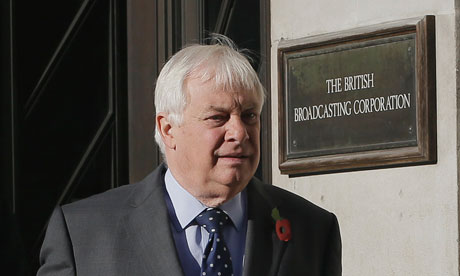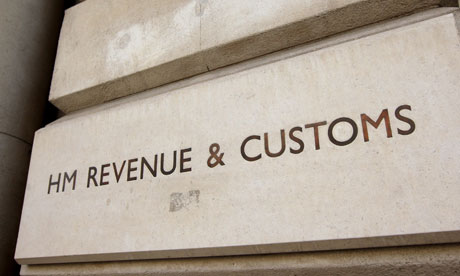SC&TECH FETURE:::combinedly science&tech correspondent&Dickinson College students/royal society blog)::::If one is going to inspire students to begin to think, research and write like historians of science I find it impossible to imagine a better place to start than the Royal Society archives.
Grant Braught, Associate Professor of Computer Science, writes: Each fall, for more than 10 years now, groups of third-year science students from Dickinson College (Carlisle, Pennsylvania, USA) have been visiting the Royal Society as part of a London-based course on the history of science. At the end of each visit the offer has been extended for the students to register as readers, giving them access to the Society’s archives. This year I decided we would take them up on that offer!
To that end, this year’s course centers on a term paper requiring each student to select an original document from the archives and then to tell the story of the people, the ideas and the social, political and scientific climate surrounding the document. I’ve asked a few of the students to write about the items they selected and their experiences at the Royal Society. This is what they found:
Reed Salmons says: Upon first entering the Royal Society, I was enamored by the beautiful layout of the building. Sitting center stage in the middle of the main reception was a greatmace given by King Charles II in 1663, and such an ornate item served as a great warm up for the historical items to come. I chose to do my report on a collection of letters between Sir Isaac Newton and Edmond Halley. Having studied the sciences for the past few years, I have been well versed in both men’s achievements. However, holding signed letters from the inventor of calculus and the discoverer of Halley’s Comet was an overwhelming learning experience. In these letters, I could see the basis of Newton’s theories on elliptical orbits, calculus and ‘Opticks’, as well as vague references to his soon-to-be-famous inverse square law. Also very apparent in Newton’s writing was his animosity towards his primary adversary in the scientific community, Robert Hooke. I am planning to further investigate this rivalry, looking for evidence in these letters for my thesis that the conflict assisted Newton in his successes.
Elizabeth Austin says: As students we have grown up studying the great natural philosophers of history. Everyone knows of Newton, Einstein, Jenner, and Franklin: they are the forefathers that laid the groundwork and developed science into the revolutionary discipline that it is today. This assignment, however, gave us the opportunity to pursue our personal interests from a historiographical perspective, and it has been inspiring and powerful to be able to access the documents that laid the foundations for our intended professions. As an aspiring veterinarian I researched the history of animal science and animal rights and found a document titled ‘Experiments on Animals and Cruelty to Animals Act’, published in 1952 by the Research Defence Society to update MPs on animal rights legislation. The pamphlet clearly articulates the scientists’ discomfort and dissatisfaction with the attention and criticism they were receiving, and it is interesting to read about researchers’ perspectives at a time when the culture of science was changing and becoming what it is today. For me, reading this pamphlet raised a variety of questions: how do British and US animal rights compare, and did one influence the other? Did any single event catalyze the movement? How has this legislation influenced the country? Did the Committee’s review significantly impact and shape the UK’s veterinary profession? In my thesis, I plan to compare the evolution of British and US animal rights legislation.
Rae Buhosky says: While in London, not only did we have the opportunity to conduct research at the Royal Society; we also visited many historical landmarks. The topic for my paper, chemotherapy, was inspired by our visit to the Alexander Fleming Museum at St. Mary’s Hospital, and the subject also seemed fitting considering many of the Fellows played some part in advancing chemotherapy and medicine. I spent a large portion of my time skimming through biographies to expand my knowledge about the Fellows that I was particularly interested in, such as Fleming and Ehrlich. I really enjoyed being surrounded by hundreds of years of life stories, and I found the Biography collection to be a special aspect of the Royal Society that I just could not get enough of. Through these explorations the topic of my paper developed into the evolution of chemotherapy, using a lecture by Sir Howard Florey as my main resource. Florey reflects upon the great trials and tribulations of scientists such as Pasteur, Koch and Lister. Throughout the lecture, he also describes the successes within this newly found area of medicine. Working with these resources has given me an increased respect for those who went outside the box and continued to search for successful results even when most others doubted them.
Avgi Chatzimpalioti says: The document I chose for my research is a report written by the Royal Society Glassworkers’ Cataract Committee, active between 1908 and 1928. The aim of the committee, which included Sir John Parsons and Sir William Crookes, was to find the exact causes of cataracts in people working in glassworks and mines, investigate different types of glasses and their resistance to certain light rays that harm human eyes and, ultimately, to improve eye protection for the workers. Although initially I was interested in researching Edward Bush’s theories on light properties, the extensive collection of archived documents in the same bundle gave me access to more specific cases related to experiments on light, their findings and implications. I therefore got the chance to read Parsons’s experiments with light on eyes, which then led me to the report by the Glassworkers’ Cataract Committee. That was the moment I realized the interdependence of each scientist’s findings and the fascinating chronology connecting their accomplishments. Accessing these handwritten documents by important scientists has been an experience for which I am very grateful to the Royal Society.
Jonathan Jackson says: I was mesmerized by Antoni van Leeuwenhoek’s letters to the Royal Society. One letter in particular, sent in 1676 to Henry Oldenburg, records Leeuwenhoek’s observations of free-living protozoa and bacteria in samples of rainwater collected from his gutter. These observations mark the first time man had seen single cell organisms and are the advent of the field of science that we now call microbiology. After some additional research on Leeuwenhoek, I discovered that he was a linen draper who had barely any education yet was still able to take remarkable notes on the observations revealed by his hand-fashioned microscope. His notes resemble those of the many trained scientists of his day, and his experiments have the ability to be duplicated. I plan to delve deeper into the legacy that this modest scientist left behind.
The students conclude: Researching in the Royal Society archives was a unique and extraordinary experience. We are grateful to the Royal Society for letting us in their doors and their Library. The experience would not have been possible without the help of the librarians who, despite our sometimes overwhelming numbers, patiently and kindly helped us to further our scientific endeavors, giving 15 of us the opportunity to immerse themselves in the works of some of the greatest minds that ever lived. Holding, examining and reading the original hand-written works of these famous scientists has awed, inspired and motivated us, and will influence us as we continue our academic and professional careers.



